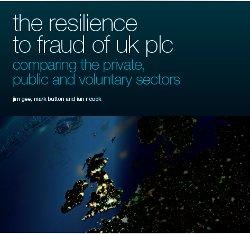An investigation into how well the public, private and voluntary sectors are set up to prevent, respond to and clamp down on fraud has shown civil society to be lagging well behind the other two sectors.
Research led by Jim Gee, director of counter fraud services at accountants PKF and chair of the Centre for Counter Fraud Services at Portsmouth University, has found that the public sector is significantly more resilient to fraud than either the private or voluntary sectors. It rated best in eight out of 12 areas, the private sector rated best in four, and the voluntary sector scored highest in none.
The study used responses from 376 organisations with total revenues amounting to £297bn, which equates to 22 per cent of the UK’s GDP. The respondents included 83 voluntary bodies that boast combined income of £3.1bn. Because the survey was necessarily self-selecting, the authors of the report said it “probably presents a more optimistic picture of what is happening than is actually the case”.
Some of the key findings were:
• 54 per cent of civil society organisations (CSOs) have no counter-fraud strategy
• 68 per cent of CSOs don’t use data analysis to detect fraud
• One-third of CSOs have no clear guidance about how fraud investigations should be conducted
• 58 per cent of CSOs have no clear policy on the recovery of fraud losses
• 76 per cent do not regularly review the effectiveness of their counter-fraud work.
Gee highlighted the results on existence of a counter-fraud strategy, stating: “The starting point for any sound attempt to minimise the risk of fraud is to have a strategy to counter it.
“In the public sector 93 per cent have a strategy, in the private sector 73 per cent did. However, among voluntary organisations the majority did not.
“Given the likely future expansion of the private and voluntary sectors undertaking previously public sector functions, this does raise some potential concerns about the safety of public funds.”
Gee also highlighted the fact that 84 per cent of the voluntary sector respondents did include fraud risks in their organisation’s risk register: “They clearly recognise fraud as a risk, but don’t seem to be doing enough to deal with that risk.”
In addition, clearly stating that losses will be recovered was an action pursued by almost three-quarters of public sector bodies, but only by 40 per cent of CSOs. “There is a stark difference between the public and voluntary sectors in respect of recovering losses incurred to fraud,” Gee wrote. “This is disappointing given the direct negative effect of fraud losses in the voluntary sector.”
PKF is using the report to promote a new tool it has developed to help organisations assess their susceptibility to fraud. The Fraud Resilience Check service costs from £4,450 plus VAT.








